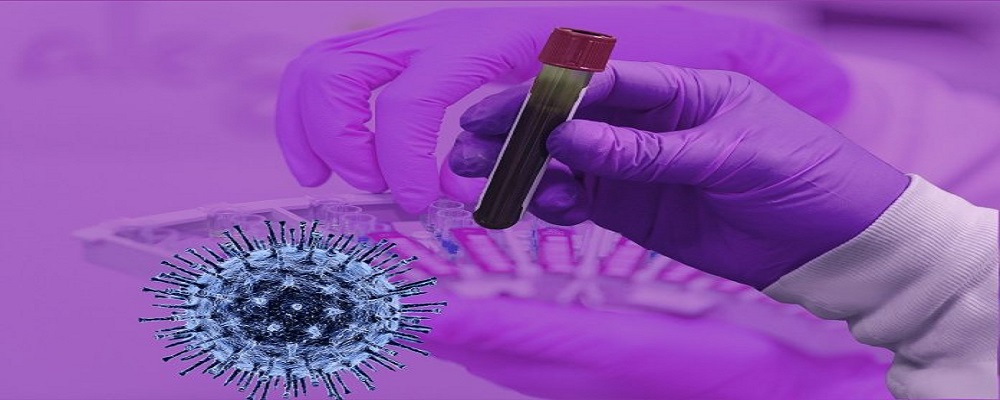A research coordinated by the University of Milan-Bicocca conducted together with the University of Brescia, indicates that methotrexate is able to block the duplication and proliferation of the virus in vitro, and therefore has the potential to limit damage in milder patients or early symptoms. The clinical trial will start as soon as possible
Milan, 2 October 2020 – Methotrexate is able to inhibit the duplication of Sars-CoV-2 – the virus that causes Covid-19 respiratory syndrome – and has the potential to limit its effects, if used on patients at the first symptoms or who have developed mild symptoms of the disease.
The discovery – for now at the laboratory level but intended for clinical experimentation – was made by researchers from the University of Milan-Bicocca and the University of Brescia and is described in the article “Methotrexate inhibits Sars-CoV-2 virus replication” in vitro “just published in the Journal of Medical Virology (DOI: http: //dx.doi.org/10.1002/jmv.26512)
The research started from a systemic approach, which focused on a viral function, but connected to the metabolism of the host cell. Like all viruses, Sars-CoV-2 to replicate needs to make many copies of the two parts of which it is made up: RNA – ribonucleic acid, or the genetic makeup – and the protein (external) part. To replicate its RNA, the virus must use nucleotides, metaphorically “building blocks” which, however, must be provided by the human cell that hosts it.
The researchers’ idea was therefore to intervene not on the virus, but on the host cells of mild patients or at the first symptoms: if the production of nucleotides is blocked, the virus no longer receives materials to make a copy of itself. It is, so to speak, “hungry” and cannot proliferate inside the lungs or migrate to other parts of the body. The infectious potential is thus limited.
To reproduce this biological mechanism, the researchers experimented on cells in vitro, at the Microbiology laboratory of the University of Brescia, directed by Prof. Arnaldo Caruso, the Methotrexate, a drug approved by the FDA (Food and Drug Administration, the agency government that deals with the regulation of pharmaceutical products) and used for decades in anticancer therapies and autoimmune diseases. This drug is capable of inhibiting the biosynthesis of purines, one of the constituents of nucleotides that are produced by cells to build their own RNA.
The results of the trial met expectations: using this systemic biology approach, the researchers were able to demonstrate that methotrexate, administered in quantities comparable to those used for other well-established therapies, inhibits Sars-CoV-RNA replication. 2, its viral synthesis and therefore its replication. The virus is thus kept “under control”. It could also be used effectively on other variants of Sars-CoV-2 that are insensitive to future vaccines or specific antiviral treatments.
The in vitro experiment will be followed as soon as possible by the clinical study on the efficacy of methotrexate in inhibiting the duplication of Sars-CoV-2. The goal is to confirm whether the drug is able to reduce the effects of the virus on patients with mild or early symptoms. To prevent, in combination with the patient’s immune system response, the spread of infection and the onset of possible fatal complications.
“This study is the result of a very innovative method – says Lilia Alberghina, Scientific Director of ISBE.IT-SYSBIO Center of Systems Biology of the University of Milano-Bicocca – on different levels: the scientific methodological approach, based on systemic biology ; a very strong interdisciplinarity, given that clinicians, biochemists, virologists and microbiologists took part in the research; strong collaboration between multiple institutions. The same team has already defined the phases of the clinical study. Now we need to start as soon as possible to validate the therapeutic efficacy of the drug at a clinical level and thus try to bring relief to a heavy and distressing social and economic situation ».
“A new approach to antiviral therapy – adds Arnaldo Caruso, Professor of Microbiology at the University of Brescia and President of the Italian Society of Virology – that starts from our knowledge of SARS-CoV-2. A virus that needs to continuously replicate in the cell it infects otherwise is degraded and eliminated. Methotrexate removes energy from the cell, preventing the virus from replicating. With this simple mechanism we can block the virus and its pathogenetic effects. As it is not a drug directed towards viral components, we need not fear that mutations of the virus may render it ineffective in the future. If we then consider the already n


